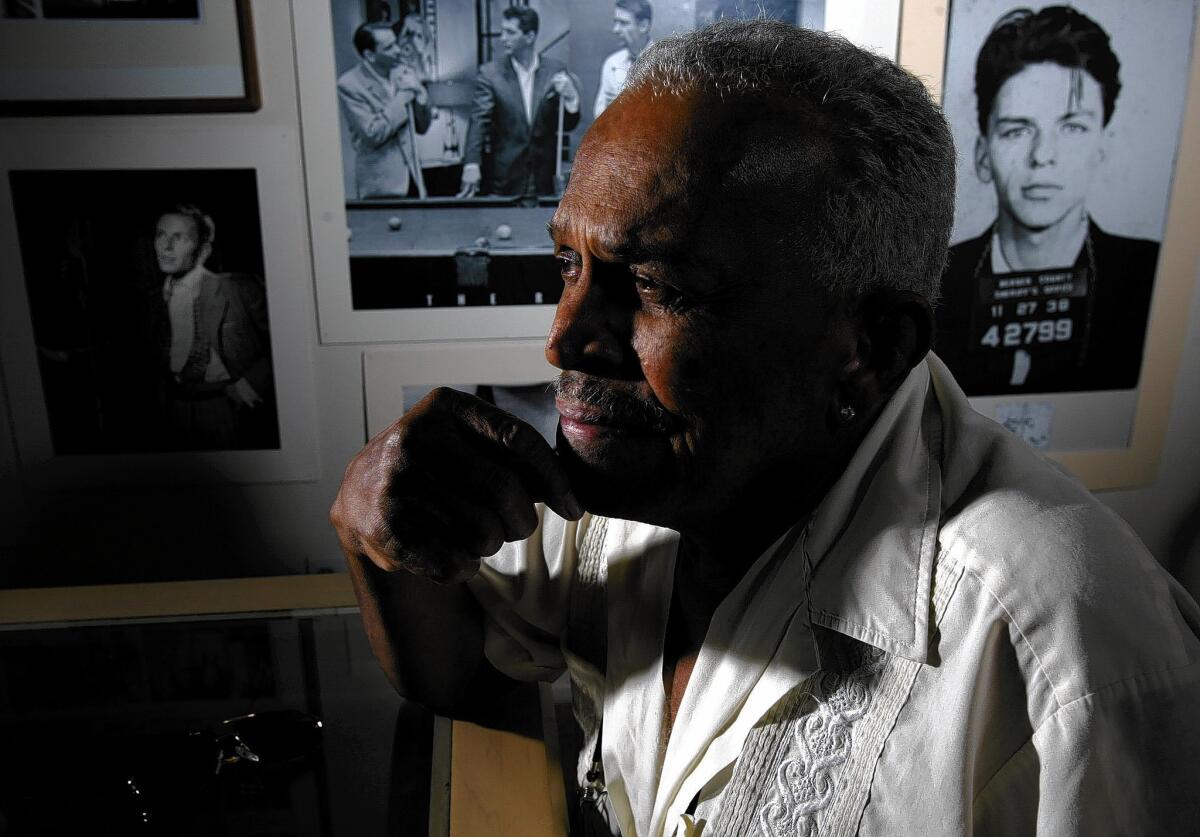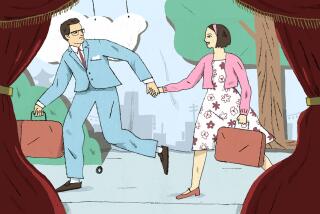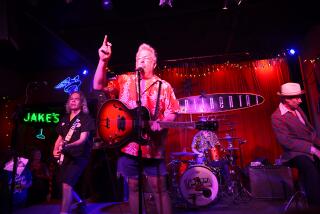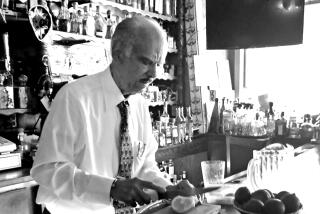George Jacobs dies at 86; Frank Sinatra’s longtime valet

For George Jacobs, whose business card proclaimed him “The Last of the Rat Pack,” there were some very good years.
From 1953 to 1968, he was Frank Sinatra’s valet, traveling companion and pal, a gentleman’s gentleman who poured the Jack Daniels at cocktail time and stayed all night to play poker.
In Palm Springs and Bel-Air, he cooked the pasta, pressed the suits, found the girls. Sinatra cried on his shoulder about his lost love, Ava Gardner. Marilyn Monroe cried on his shoulder about Sinatra.
The product of a rough-and-tumble background, Jacobs got up close and personal with global figures. He had a spirited talk about women with John F. Kennedy while giving the future president a massage. Sinatra’s mobster friend Sam Giancana joked about trying to hire him away; Jacobs later observed that Giancana, the late Mafia boss accused by conspiracy theorists in the JFK assassination, “had the most perfectly manicured hands and nails I had ever seen.”
“It was an amazing trip, and even more amazing that a poor black kid from Louisiana like me got to take it,” he wrote in “Mr. S: My Life With Frank Sinatra”, a tell-all 2003 memoir he cowrote with William Stadiem.
Jacobs, 86, died in his sleep Saturday at a Palm Springs nursing home, said his son, artist Snake Jagger.
Born in New Orleans on April 29, 1927, Jacobs spent days with his mother, a cook for a wealthy family in the city’s Garden District, and nights with his father, the owner of a honky-tonk called the Joy Tavern. His Creole grandmother had 103 other grandchildren. A grandfather and a great-grandfather on each side of his family was Jewish.
In 1945, the trim, handsome Jacobs joined the Navy, trained as a ship’s cook and became an aide to an admiral. While on an aircraft carrier off Korea, he was told that his father had been fatally shot in a robbery. Back in New Orleans, he learned that his dad was killed by gangsters squeezing him for money with the aid of police.
Disgusted with his hometown, Jacobs moved to Los Angeles and took a series of odd jobs — gardener, process server, an extra in “cheesy MGM ‘Tarzan’ knockoffs” — and wound up working Hollywood parties for a caterer. In 1950, he caught the eye of superagent Irving “Swifty” Lazar who hired him as a Man Friday.
“Whenever Lazar ordered me around too much, I would begin talking right back to him,” Jacobs wrote. “‘Abraham Lincoln fixed it so we wouldn’t have to live like this,’” I protested to him one night. He sat back in the back seat of the Rolls and started whistling “Dixie.’ ”
When Sinatra hired Jacobs three years later, the legendary singer and his new valet hit it off.
A prankster, Sinatra sent Jacobs to Tijuana to load up on cherry bombs that he’d explode in toilet bowls. “The Hoboken Bomber strikes again!” Sinatra would cackle.
“Today they’d give him Ritalin,” Jacobs wrote. “He couldn’t sit still and he couldn’t be alone.”
Sinatra had a famously insatiable sexual appetite, whether for well-known actresses or cocktail waitresses.
More than once, Jacobs wrote, he’d have to drive Sinatra’s conquests home in the middle of the night after his boss deemed their perfume excessive.
Just as Sinatra and the other members of his inner circle ribbed each other with derogatory ethnic names, he sometimes called Jacobs “Spook.”
“I took it as a brotherly nickname, not a racial epithet,” Jacobs wrote.
Jacobs was married and divorced three times, his son said.
At one divorce hearing, an exasperated Jacobs threw a trash can at news photographers.
Sinatra was delighted.
“Hey, Spook, who do you think you are?” he asked his valet. “Frank Sinatra?”
On a trip to Israel, Sinatra and songwriter Jimmy van Heusen urged Jacobs to connect with his Jewish roots and get a “quickie Bar Mitzvah.”
They followed up the ceremony with a trip to a brothel and an all-night drunk on kosher wine, Jacobs wrote. The next day, Sinatra and his entourage vanished by the time Jacobs got out of bed, leaving him without cash and no one to call for help.
“My life had come to revolve so entirely around Frank Sinatra that I had absolutely no one else,” he wrote.
In 1960, Sinatra campaigned for Kennedy and, after his victory, prepared his Palm Springs home for presidential visits. He was devastated when family patriarch Joseph Kennedy ruled that Sinatra’s unsavory associations made his home off-limits for the president-to-be.
Jacobs said his boss was wailing — “like a little kid and nearly in tears.”
It was Jacobs who was in tears a few years later. Sinatra was in the midst of a divorce from Mia Farrow and Jacobs ran into her at a Los Angeles club. When gossip columnist Rona Barrett printed an item about the two dancing together, Sinatra was infuriated.
Returning to Sinatra’s place in Palm Springs, Jacobs found that the locks had been changed. A letter from Sinatra’s lawyer told him he was terminated.
“I had no idea it was a sin what I did,” Jacobs told The New York Times in 2003. “Hell, she was like one of my children. I’ve got shoes older than her.”
In his later years, Jacobs occasionally showed tourists through Sinatra’s former estate, which had been turned into a venue for weddings and corporate retreats.
For a few years, he tried his hand at carpentry. He worked for Steve McQueen and Bill Cosby. He also sang on “The Gong Show” and appeared on “The Dating Game.”
His book was denounced as character assassination by Frank Sinatra Jr.
But for Jacobs, “it relieved a lot of my thoughts and tensions,” he told the Los Angeles Times. “I used to sit and cry a lot. I wasn’t keepin’ it goin’. So this really helped.”
In addition to Jagger, Jacobs is survived by sons Sean Jacobs, George Jacobs Jr. and John Dodd; and daughters Jennifer Joyner and Raychel Jacobs.
Three other children are no longer living.
More to Read
Start your day right
Sign up for Essential California for the L.A. Times biggest news, features and recommendations in your inbox six days a week.
You may occasionally receive promotional content from the Los Angeles Times.







